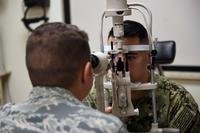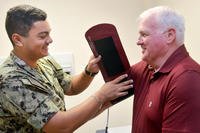Veteran employment issues took center stage on Capitol Hill today, as the Senate Veterans’ Affairs Committee held hearings on a subject which was recently covered in this blog by Ben Krause – the increasing veteran jobless rates.
Senate Veterans’ Affairs Committee Chairman, Patty Murray (D-WA) stated that the “high rate of unemployment for recently separated veterans is an issue that at first glance defies common sense.” She noted, that despite their training, skills, and desire to achieve, “over 27 percent of veterans age 20-24 were unemployed.”
Murray also pointed out that the process of applying for a civilian job is brand new to many young veterans who had likely never applied for civilian employment before joining the military. Murray believes that programs like the Transaction Assistance Program (TAP) “should be the cornerstone to meaningful employment for young veterans.” In addition, Murray said that the government needs to “improve efforts to translate skills from the battlefield, onto a resume, and into an interview with a prospective employer.”
Background: TAP is a partnership program between DoD, DOL VETS, VA, and DHS (for Coast Guard). TAP workshops are normally offered sometime during the last few months of service, and in the case of National Guard and Reserve, it is often offered as part of their out-processing or demobilization.
The president of Military.com, Admiral T. McCreary, also testified at the hearing. Admiral McCreary echoed Murray’s statement saying that “military personnel need more exposure to the private sector before they leave the service. That exposure needs to happen in the form of enhanced Transition Assistance Programs where the focus needs to be on the veteran getting ahead rather than just getting out.”
In addition, McCreary pointed to several key factors that could help improve the transition process for today’s younger vets. His suggestions included better outreach to help civlian employers and HR managers understand the military, a greater effort to translate military skills and certifications into civilian jobs and credentials, and partnerships that can help leverage private sector job searching, networking, and resume building expertise.
Read Admiral McCreary's Full Testimony
Assistant Secretary for Veteran’s Employment and Training (DOL), Raymond Jefferson, testified that the VETS program is working to impact the bleak employment numbers by prioritizing efforts to transform TAP, implement a new approach to employer outreach, and better serve rural Veterans. Jefferson sees the Transition Assistance Program as the primary program for assisting individuals in their transition process.
To Admiral McCreary’s point, I think the focus should be on weaving transition preparedness into the servicemembers experience long before the exit-counseling. Not many servicemembers can pay full attention in the TAP workshops when attention is on relocation concerns like house hunting, movers, utilities, and housing inspections, not to mention the anxiety of worrying about the next job.



